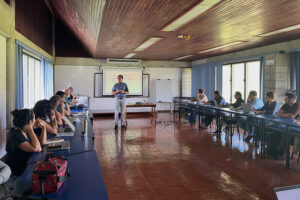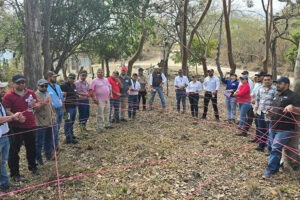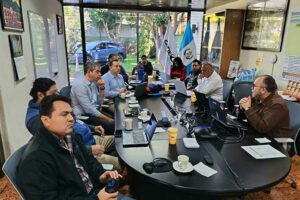SECAC and CATIE: driving livestock productivity and sustainability for Central America
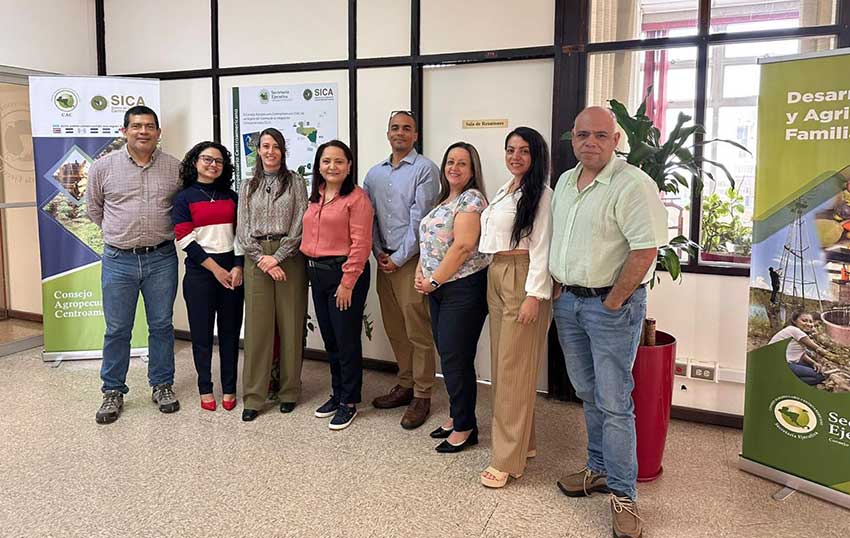
- Toward a sustainable, low-carbon livestock sector for SICA.
CATIE (Tropical Agricultural Research and Higher Education Center) and the Executive Secretariat of the Central American Agricultural Council (SE-CAC) held a working meeting with the purpose of coordinating joint actions aimed at supporting the design of the Sustainable Livestock Strategy for the region of the Central American Integration System (SICA), under the leadership of the Central American Agricultural Council (CAC).
This strategy is conceived as a regional common framework that complements and enhances national efforts, boosting the productivity and competitiveness of the livestock sector while reducing associated environmental impacts. Its implementation will promote actions and practices aligned with the countries’ commitments.
Priority actions
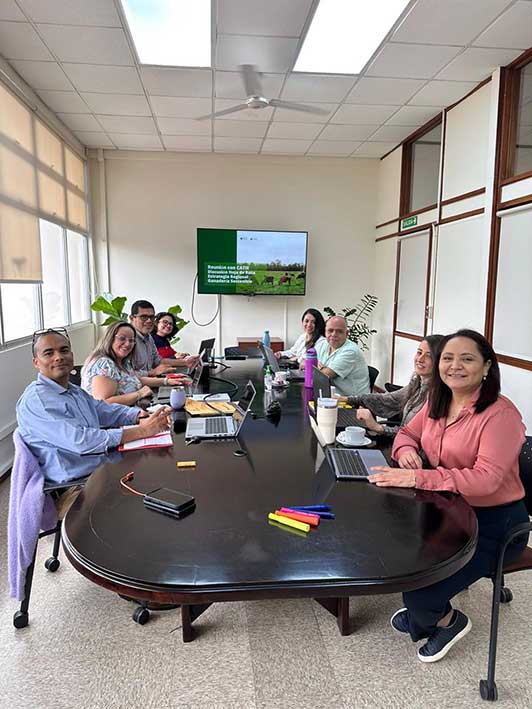
Among the topics that will be part of the dialogue for the strategy-building process, the following stand out:
- Improvement of productivity and competitiveness: adoption of technologies and practices that increase production efficiency and the quality of meat and milk.
- Reduction of environmental impact: implementation of measures that prevent deforestation, soil degradation, and water pollution.
- Capacity strengthening: training and capacity building for producers and technicians in sustainable practices and natural resource management.
- Research and innovation: development of research and technologies that strengthen the transition toward low-carbon livestock.
- Inter-institutional coordination: articulation of efforts among public and private institutions to ensure coherent policies and programs in favor of sustainability.
Expected benefits
The implementation of the strategy represents an opportunity to:
- Contribute to food security by improving the production and quality of livestock products.
- Reduce rural poverty through higher incomes and jobs generated in the sector.
- Protect natural resources, ensuring the conservation of soils, water, and forests for the benefit of present and future generations.
With this joint effort, CATIE and SECAC reaffirm their commitment to the development of the region and climate action, driving a more competitive, inclusive, and resilient livestock sector in the face of climate change.
More information:
Claudia Sepúlveda
Coordinator
Livestock and Environmental Management Unit
CATIE
csepul@catie.ac.cr
Written by:
Gina Samanti Puerto Morazán
Communicator
Communicator
Project Transforming the Honduran Livestock Sector Towards a Low-Carbon Economy (MAF-Ganadería-HN)
CATIE
gina.puerto@catie.ac.cr

